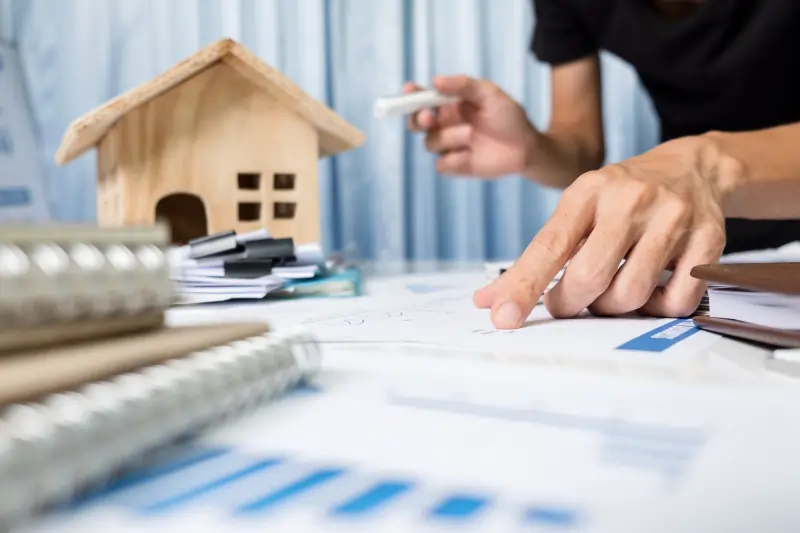Are you a homeowner in NY State confused about property tax? You’re not alone. Property tax can be a real brain twister, especially when considering taxes when selling a house. In this guide, we’ll break down everything you need to know about NY State property tax in 2024, keeping it simple even if numbers aren’t your thing.
NY State Property Tax
Let’s start with the basics. Property tax, or New York property tax, is a tax that property owners must pay based on the value of their property. It’s a significant factor when selling a home in NY. These taxes fund local services like schools, roads, and emergency services.
New York is known for having some of the highest property taxes in the country. In New York City, while property tax rates are relatively low, the high real estate values result in higher overall payments for homeowners. Owning a home in the Empire State can be challenging for some, but don’t worry – we’ll break it down for you.
NY Assessed Values
Before diving into tax rates, let’s discuss assessed values, a crucial factor in determining your property tax bill.
The assessed value is what your local government believes your property is worth for tax purposes. It’s not always the same as the market value, which is what your property would sell for on the open market. Each town or city has its method of determining this, usually done by a town assessor.
Keep in mind that the assessed value can change from year to year. Improvements to your property, changes in the local real estate market, or even shifts in the local economy can affect your assessed value.
NY Property Tax Rates
Now, let’s talk about tax rates. Property tax is a local tax, and the rates can vary significantly depending on the county and municipality. The property tax rate is the percentage of your property’s assessed value you’ll pay each year. In NY, these rates can vary considerably depending on where you live.
Property tax rates are usually expressed as a percentage or as dollars per thousand of assessed value. For example, if the tax rate is 2% and your property’s assessed value is $200,000, your annual property tax would be $4,000.
It’s worth noting that in NY, your total property tax bill often comprises several different taxes. You might have a county tax, a town or city tax, a school district tax, and possibly some special district taxes (like fire protection or libraries).


Property Tax Rates Per NY County
Let’s examine some specific counties in New York to illustrate how property tax rates vary across the state. Remember, New York State property taxes are calculated based on assessments from local authorities, and the rates can fluctuate significantly from one county to another.
Nassau County
Nassau County, located on the western part of Long Island, is notorious for its high property taxes. The average effective property tax rate here is around 1.79%. To put this into perspective, if you own a home valued at $500,000, you might be paying approximately $8,950 in property taxes each year. That’s nearly $746 per month just in property taxes!
It’s no surprise that many homeowners in this area are exploring options to sell their houses quickly. Some even turn to companies that advertise “we buy houses in Nassau County” to alleviate their tax burden.
Suffolk County
Right next door to Nassau, Suffolk County also has relatively high property taxes, though slightly lower than its neighbor. The average effective rate here is about 2.42%. Using our example of a $500,000 home, you’d be looking at an annual tax bill of around $12,100.
While this is a bit more than Nassau County, it’s still a substantial amount that can strain many homeowners’ budgets. The difference of about $3,150 per year might not seem huge, but over time, it can add up to a significant amount.
Westchester County
Westchester County, just north of New York City, is another area known for its sky-high property taxes. The average effective rate here is approximately 1.62%, even higher than in Nassau County. Our $500,000 home in Westchester would come with a tax bill of about $8,100 per year.
This high tax rate is often attributed to the county’s excellent school systems and proximity to New York City. However, it can make homeownership in Westchester challenging for many, particularly first-time buyers or those on fixed incomes.
Erie County
Moving upstate to Erie County, home to Buffalo, we see somewhat lower property tax rates compared to the downstate counties. The average effective rate here is about 2.63%. That same $500,000 home would have a tax bill of around $13,150.
While this is significantly lower than the rates in Nassau, Suffolk, or Westchester counties, it’s still higher than the national average. However, it’s worth noting that home values in Erie County are generally lower than in the downstate areas, which can help offset the tax burden for many homeowners.
Monroe County
In Monroe County, where Rochester is located, the average effective property tax rate is about 3.21%. Our $500,000 home would have a tax bill of approximately $16,050.
This rate puts Monroe County more in line with the high-tax areas of downstate New York, despite its upstate location. The relatively high rates here are often attributed to the county’s urban center (Rochester) and its associated services and school districts.
Onondaga County
Finally, in Onondaga County, home to Syracuse, the average effective property tax rate is about 3.01%. Here, that $500,000 home would come with a tax bill of about $15,050.
While lower than some of the other counties we’ve looked at, this rate is still considerable. It can be a significant factor for homeowners and potential buyers in the Syracuse area.
Request Your FREE Cash Offer Today And Sell Your NY House Fast!
Looking to sell your house in New York? Fill out the form below or call us at 631-430-0783 for your FREE cash offer!
Additional Considerations
It’s crucial to remember that these figures are averages, and individual property tax bills can vary widely within each county. Factors that can affect your specific tax bill include:
- Location within the county: Even within a single county, tax rates can vary between different towns, villages, or school districts.
- Property type: Residential, commercial, and industrial properties may be taxed at different rates.
- Property value: Generally, higher-valued properties will have higher tax bills, even if the rate is the same.
- Exemptions: Various exemptions (like the STAR program, veterans exemptions, or senior citizen exemptions) can lower your effective tax rate.
- Recent reassessments: If your property has been recently reassessed, this could significantly impact your tax bill.
As you can see, property tax rates vary quite a bit across New York State. That’s why it’s important to consider property taxes when selling a home or buying. A lower-priced home in a high-tax area might end up costing more in the long run than a higher-priced home in a low-tax area.


Property Taxes and Homeowners
Now that we’ve looked at the numbers, let’s talk about what this means for homeowners in NY.
High property tax can be a real burden for many. Homeowners in New York are also affected by state income taxes, which add to the overall tax burden. They increase the cost of owning a home and make it harder for some to afford to stay in their homes. This is especially true for people on fixed incomes like retirees.
Property tax can also impact home values. Areas with very high property taxes might see slower growth in home values because buyers are factoring in the tax when deciding how much they’ll pay for a home.
For some homeowners, high property tax might be a reason to sell their home. If you’re having trouble paying your property tax, you’re not alone. Many homeowners in NY are in the same boat.
Options for Homeowners with Property Tax Problems
If you’re having trouble with your property tax, you have a few options:
- Check for exemptions: NY offers several property tax exemptions that could lower your bill. These include the School Tax Relief (STAR) program, exemptions for veterans, and exemptions for senior citizens. Check to see if you qualify for any of these.
- Grieve your assessment: If you think your property is assessed too high, you can grieve. This process could result in a lower tax bill if successful.
- Sell: For some homeowners, selling is the best option. If you’re in this situation, you might want to consider a cash home buyer.
It’s important to note that not paying property taxes in New York can lead to serious consequences, including liens on your property or even foreclosure. Always explore all available options before considering this route.
Benefits of Working with a Cash Home Buyer
If you’re considering selling your home due to high property tax or any other reason, working with the best cash home buyers in New York can offer several advantages:
- Speed: Cash buyers can close a sale much faster than traditional buyers. This can be a big help if you’re under financial pressure from property tax.
- Simplicity: Cash sales involve less paperwork and fewer complications than traditional sales. This can be less stressful.
- No realtor commissions: When you sell to a cash buyer, you don’t have to pay realtor commissions. This can save you thousands.
- Sell as-is: Cash buyers purchase homes as-is. This means you don’t have to spend money on repairs or renovations before selling.
- Certainty: With a cash buyer, you don’t have to worry about a buyer’s financing falling through at the last minute.
For those looking to sell your house fast in Suffolk County, cash home buyers can be an attractive option, offering a quick solution to property tax burdens or other financial pressures.
Bottom Line
Property tax is a significant consideration for homeowners in NY State. It varies by area and can add substantially to the cost of owning a home.
If you’re having trouble with property tax, remember you have options. Check for exemptions, grieve your assessment – there are ways to lower your tax bill. And if selling is necessary, consider alternatives like cash home buyers that offer a faster and simpler process.
Property tax is part of the homeownership puzzle in NY. Stay informed and know your options, and you’ll make the best decision for your situation.
Remember, whether buying, selling, or just managing your current property, it’s always a good idea to consult with local experts who can give you advice specific to your situation and area.